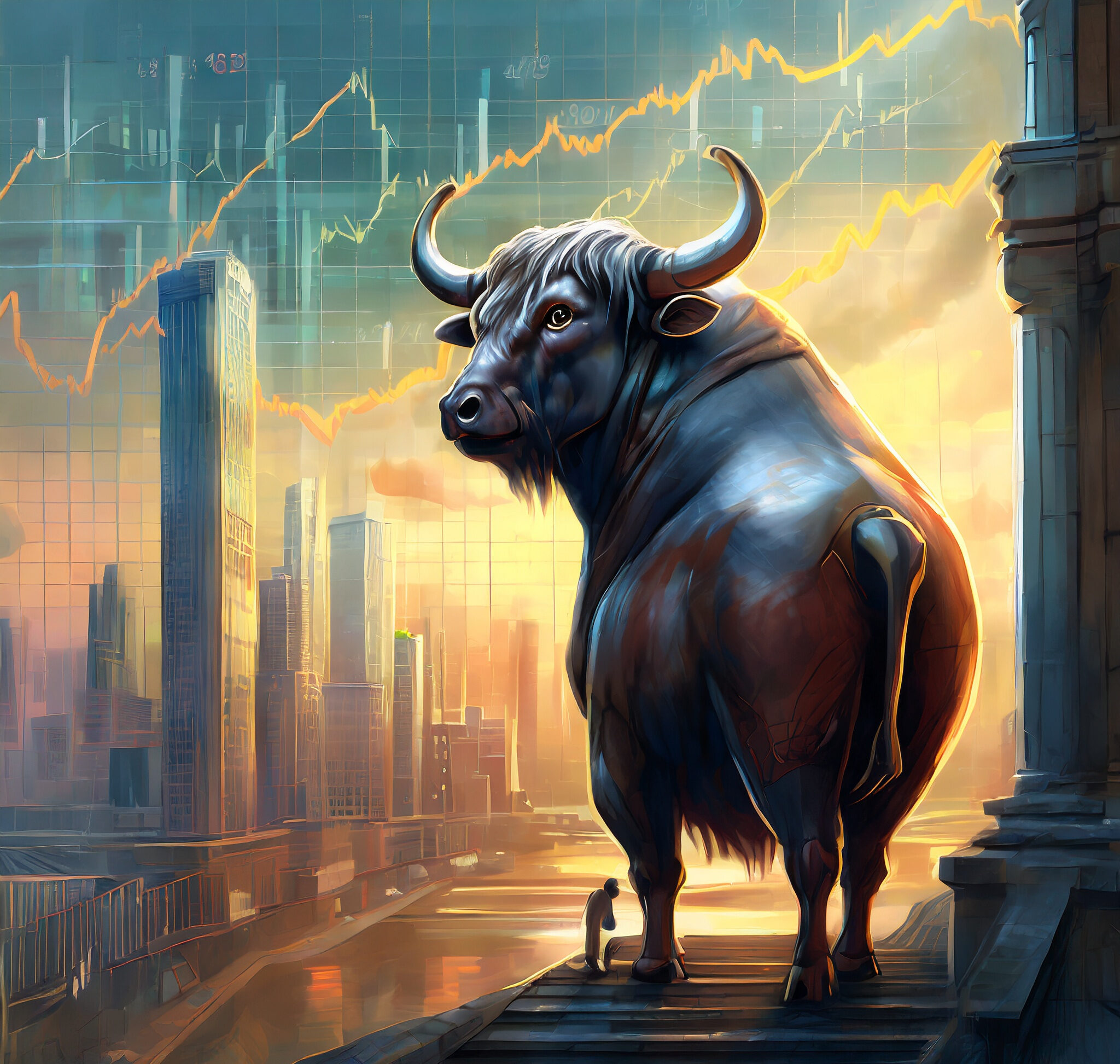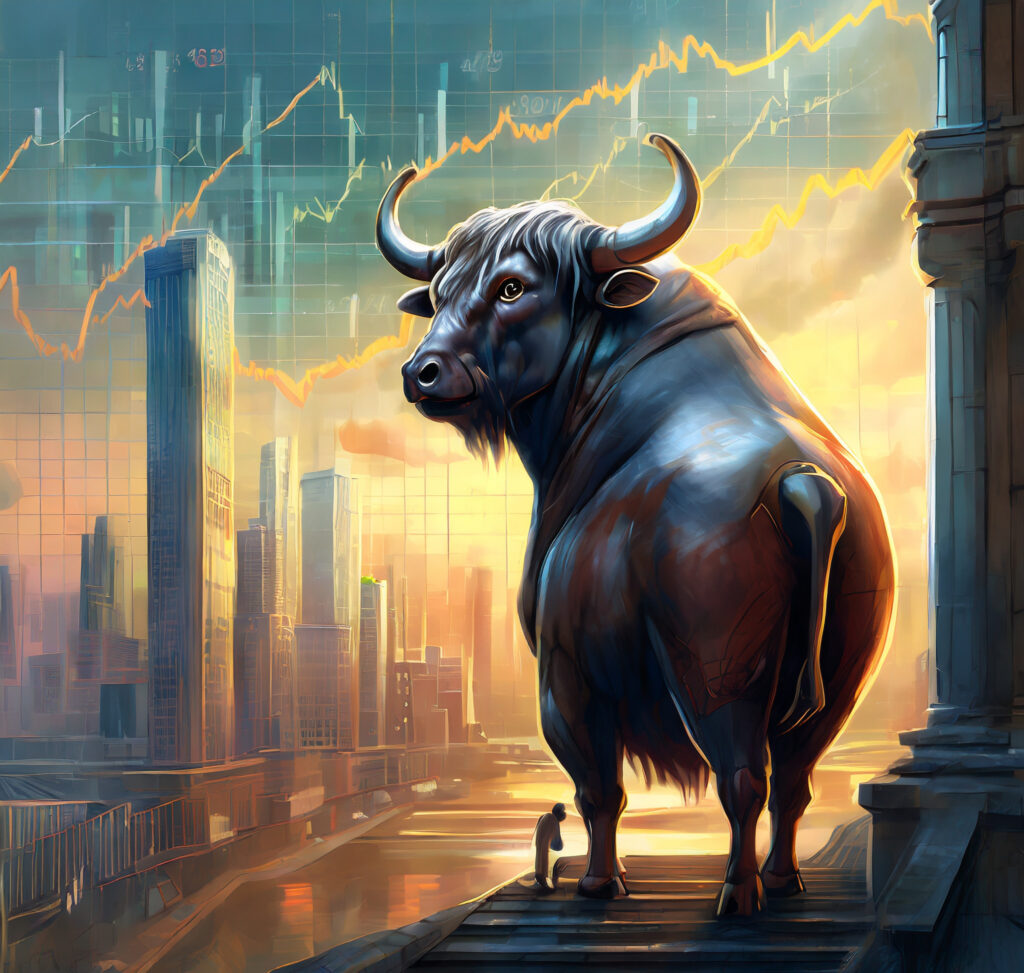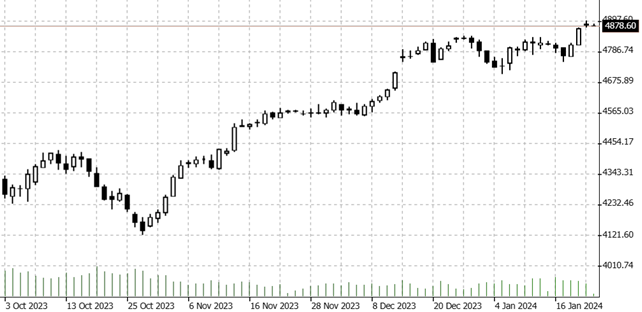

23.01.2024 – New records on Wall Street: the Dow Jones and S&P 500 have now also reached their all-time highs. The magic word is resilience – the resilience of the economy.
The bulls are on the loose: the S&P 500 is incessantly pushing ahead. The picture shows the daily chart.

Source: Bernstein Bank GmbH
Tech stocks in particular provided momentum on the trading floor. Following its recent record high, Meta is heading for a market capitalisation of around USD 1 trillion. Together with Nvidia, Microsoft, Apple, Alphabet and Amazon, Meta would then be part of the exclusive club of giga-techs that reach this market capitalisation. The parent company of Facebook could crack this mark by the time of its financial figures, which are expected at the beginning of February. Meta announced a particularly advanced form of artificial intelligence last week. Just for the sake of completeness: the Nasdaq 100 also set another record yesterday.
Hoping for strong figures
At the start of the week, optimism spread about the state of the American economy and the global economy – most analysts are expecting a strong reporting season. This week, Netflix, Tesla and Intel are among those reporting. So far, the incoming balance sheets have been positive – around 11 per cent of the companies in the S&P 500 had presented their figures for the fourth quarter by yesterday; according to Bloomberg, 85 per cent of these exceeded expectations.
In addition, a fall in the yield on US government bonds supported the buying mood. The market continues to expect interest rates to fall again soon: For the Federal Reserve meeting at the end of January, only 3 per cent believe in a rate cut of 25 basis points, according to Barchart.com, but this figure is 42 per cent for the end of March.
The crises have not gone away
The market is currently showing astonishing resilience in the face of crises that have by no means disappeared. The crash on the Chinese stock market is a warning signal – according to press reports, Beijing wants to support the market with an aid package worth the equivalent of 278 billion dollars. Shares in China have made their weakest start to the year since 2016.
The Middle East war is not over either – on the contrary, it could spread to Lebanon, which is being held hostage by Hezbollah. The Ukraine invasion should not be forgotten either. Plus a possible invasion of Taiwan by China. The kink in the chart above after 7 October – the Hamas attack on Israel – shows how quickly political crises can turn sentiment. With this in mind: ride the wave, but always keep an eye on the real-time news. Whether long or short – Bernstein Bank wishes you successful trades and investments!
__________________________________________________________________________________________________________________
The content of this publication is for general information purposes only. In this context, it is neither an individual investment recommendation or advice nor an offer to purchase or sell securities or other financial products. The content in question and all the information contained therein do not in any way replace individual investor- or investment-oriented advice. No reliable forecast or indication for the future is possible with respect to any presentation or information on the present or past performance of the relevant underlying assets. All information and data presented in this publication are based on reliable sources. However, Bernstein Bank does not guarantee that the information and data contained in this publication is up-to-date, correct and complete. Securities traded on the financial markets are subject to price fluctuations. A contract for difference (CFD) is also a financial instrument with leverage effect. Against this backdrop, CFD trading involves a high risk up to the point of total loss and may not be suitable for all investors. Therefore, make sure that you have fully understood all the correlating risks. If necessary, ask for independent advice. CFDs are complex instruments and are associated with the high risk of losing money quickly because of the leverage effect. 68% of retail investor accounts lose money trading CFD with this provider. You should consider whether you understand how CFD work and whether you can afford to take the high risk of losing your money.7
